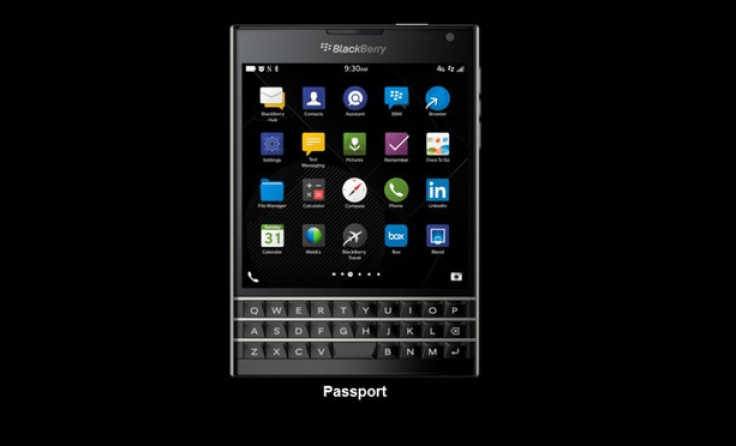BlackBerry Passport Price and Launch Date Revealed: Costs Less than Rival Smartphones

BlackBerry's 2014 high-end flagship smartphone - BlackBerry Passport - will be launched with a price tag considerably lower than that of rival devices in the market.
John Chen, the company's chief executive confirmed that the BlackBerry Passport will go on sale starting from 24 September, 2014, with a suggested retail price of $599 (£366) in the US, without subsidies, reports the Wall Street Journal. But differences in taxes and tariffs mean the handset will cost differently in other markets.
The Passport should have cost $700, considering the price of rival smartphones, added Chen, "But I figure that to try to get the market interested, we're going to start a little lower than that."
As for pricing of rival smartphones, Apple's iPhone 6 and iPhone 6 Plus cost $649 and $749 respectively, while the launch price for Samsung's fifth generation Galaxy S in the US was about $650.
BlackBerry Passport specs
Chen revealed some of the hardware specifications for the Passport ahead of its launch. He said the new Passport integrating a large screen would appeal to users who needed to be more productive on the smartphone. The screen size and high resolution will enable users to view 60 characters on each line. "You really are seeing a more entire picture than seeing a sliver of a screen," said Chen.
The handset comes with a battery that will run for 36 hours and a large antenna for reception. Additionally, the keyboard can be used for scrolling through content on the screen.
The smartphone will be launched in Toronto, London and Dubai simultaneously on 24 September, followed by a release soon in some stores. Other regions will get the new BlackBerry model in a week or two.
What Market Analysts Say
Blackberry is optimistic about its new product despite analysts' prediction that the handset might not do well compared to Android and iOS powered models.
"The Passport is a good phone but it will never really hit the mainstream as a premium offering," predicts Daniel Pang, a researcher with IDC Malaysia. "Most consumers are too invested in other platforms, such as Android or iOS."
© Copyright IBTimes 2024. All rights reserved.





